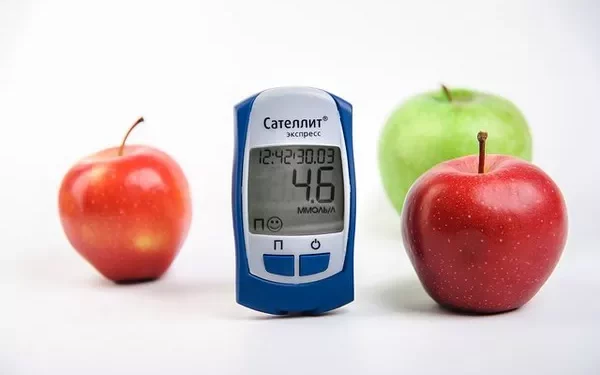Hypoglycemia, or low blood sugar, is a common and potentially dangerous condition that can affect people with diabetes. It occurs when the blood glucose level falls below normal, typically under 70 mg/dL (3.9 mmol/L). Although both Type 1 and Type 2 diabetes can lead to hypoglycemia, the mechanisms, risk factors, and management strategies differ between the two types. Understanding these differences is crucial for effective prevention and treatment.
Type 1 Diabetes and Hypoglycemia
Type 1 diabetes is an autoimmune condition where the body’s immune system attacks and destroys the insulin-producing beta cells in the pancreas. As a result, individuals with Type 1 diabetes produce little to no insulin and require lifelong insulin therapy to manage their blood sugar levels.
Mechanisms of Hypoglycemia in Type 1 Diabetes
In Type 1 diabetes, hypoglycemia often results from an imbalance between insulin administration and factors such as food intake, physical activity, and other variables that affect blood sugar levels. Key mechanisms include:
Excess Insulin: Over-administration of insulin, either through injections or an insulin pump, is a primary cause of hypoglycemia. This can occur due to miscalculation of insulin doses or unexpected changes in insulin sensitivity.
Delayed or Missed Meals: Skipping or delaying meals can lead to a mismatch between insulin levels and glucose availability, causing blood sugar to drop.
Increased Physical Activity: Exercise increases insulin sensitivity and glucose uptake by muscles, which can reduce blood sugar levels, especially if insulin doses are not adjusted accordingly.
Alcohol Consumption: Alcohol can inhibit gluconeogenesis in the liver, leading to a decrease in blood glucose levels, particularly if consumed on an empty stomach or in conjunction with insulin.
Risk Factors for Hypoglycemia in Type 1 Diabetes
Several factors increase the risk of hypoglycemia in individuals with Type 1 diabetes, including:
Strict Glycemic Control: Intensive insulin therapy aimed at maintaining tight glycemic control can increase the frequency of hypoglycemic episodes.
Hypoglycemia Unawareness: Repeated episodes of hypoglycemia can impair the body’s ability to recognize low blood sugar, reducing the effectiveness of counterregulatory responses.
Young Age: Children and adolescents with Type 1 diabetes may have difficulty managing their insulin and carbohydrate intake, leading to an increased risk of hypoglycemia.
Long Duration of Diabetes: Over time, individuals with Type 1 diabetes may experience a decline in counterregulatory hormone responses, increasing the risk of severe hypoglycemia.
Management of Hypoglycemia in Type 1 Diabetes
Effective management of hypoglycemia in Type 1 diabetes involves a combination of strategies:
Frequent Monitoring: Regular blood glucose monitoring helps detect low blood sugar early and allows for timely intervention.
Education and Awareness: Individuals with Type 1 diabetes should be educated about the signs and symptoms of hypoglycemia and how to respond appropriately.
Carbohydrate Management: Consistent carbohydrate intake and understanding how different foods affect blood sugar can help prevent hypoglycemia.
Insulin Adjustment: Adjusting insulin doses based on factors such as food intake, physical activity, and stress can help maintain stable blood sugar levels.
Use of Technology: Continuous glucose monitors (CGMs) and insulin pumps with automated insulin delivery systems can provide real-time data and help prevent hypoglycemia.
Type 2 Diabetes and Hypoglycemia
Type 2 diabetes is characterized by insulin resistance and a relative deficiency in insulin production. It is often associated with obesity and metabolic syndrome. While people with Type 2 diabetes may not initially require insulin therapy, many eventually do as the disease progresses.
Mechanisms of Hypoglycemia in Type 2 Diabetes
In Type 2 diabetes, hypoglycemia can occur due to a combination of insulin therapy and other glucose-lowering medications. Key mechanisms include:
Insulin Therapy: Similar to Type 1 diabetes, excessive insulin administration can cause hypoglycemia in individuals with Type 2 diabetes.
Oral Hypoglycemic Agents: Medications such as sulfonylureas and meglitinides stimulate insulin secretion and can lead to hypoglycemia, especially if meals are skipped or delayed.
Combination Therapy: Using multiple glucose-lowering medications simultaneously can increase the risk of hypoglycemia, particularly in older adults or those with renal impairment.
Renal Insufficiency: Decreased kidney function can impair the clearance of insulin and other medications, leading to prolonged effects and an increased risk of hypoglycemia.
Risk Factors for Hypoglycemia in Type 2 Diabetes
Several factors increase the risk of hypoglycemia in individuals with Type 2 diabetes, including:
Advanced Age: Older adults may have difficulty recognizing and managing hypoglycemia due to cognitive impairment or comorbid conditions.
Duration of Diabetes: Longer duration of diabetes increases the likelihood of requiring insulin therapy and experiencing hypoglycemia.
Polypharmacy: The use of multiple medications for diabetes and other comorbid conditions can increase the risk of drug interactions and hypoglycemia.
Renal Impairment: Reduced kidney function can affect the metabolism and clearance of glucose-lowering medications, increasing the risk of hypoglycemia.
Management of Hypoglycemia in Type 2 Diabetes
Effective management of hypoglycemia in Type 2 diabetes involves:
Medication Review: Regularly reviewing medications and adjusting doses as needed to minimize the risk of hypoglycemia.
Patient Education: Educating patients about the signs, symptoms, and management of hypoglycemia, as well as the importance of consistent meal patterns.
Monitoring Blood Glucose: Regular blood glucose monitoring helps identify trends and prevent hypoglycemia.
Dietary Management: Emphasizing regular meals and snacks that include carbohydrates to help maintain stable blood glucose levels.
Individualized Treatment Plans: Tailoring treatment plans to each patient’s needs, taking into account factors such as age, comorbidities, and renal function.
Differences in Hypoglycemia Between Type 1 and Type 2 Diabetes
While hypoglycemia can occur in both Type 1 and Type 2 diabetes, there are notable differences in the frequency, causes, and management of hypoglycemia between the two types.
Frequency of Hypoglycemia
- Type 1 Diabetes: Hypoglycemia is more common in Type 1 diabetes due to the reliance on exogenous insulin and the need for precise insulin dosing.
- Type 2 Diabetes: While less common than in Type 1 diabetes, hypoglycemia can still occur in Type 2 diabetes, particularly in those using insulin or sulfonylureas.
Causes of Hypoglycemia
- Type 1 Diabetes: Primarily caused by an imbalance between insulin administration and factors such as food intake and physical activity.
- Type 2 Diabetes: Often caused by oral hypoglycemic agents, insulin therapy, or a combination of medications, particularly in the context of renal impairment or advanced age.
Symptoms and Recognition of Hypoglycemia
- Type 1 Diabetes: Individuals with Type 1 diabetes may experience more severe symptoms of hypoglycemia and are at risk for hypoglycemia unawareness.
- Type 2 Diabetes: Older adults with Type 2 diabetes may have less pronounced symptoms and a higher risk of severe hypoglycemia due to comorbidities and cognitive impairment.
Management Strategies
- Type 1 Diabetes: Management focuses on precise insulin dosing, frequent blood glucose monitoring, and education about hypoglycemia prevention and treatment.
- Type 2 Diabetes: Management involves reviewing and adjusting medications, patient education, and regular blood glucose monitoring to prevent hypoglycemia.
Technological Aids in Managing Hypoglycemia
The advent of technology has significantly improved the management of hypoglycemia in both Type 1 and Type 2 diabetes. Continuous glucose monitors (CGMs) and insulin pumps with automated insulin delivery systems are increasingly being used to provide real-time glucose data and adjust insulin delivery accordingly. These technologies can help reduce the frequency and severity of hypoglycemic episodes.
Psychosocial Impact of Hypoglycemia
Hypoglycemia can have a significant psychosocial impact on individuals with diabetes, affecting their quality of life and mental health. Fear of hypoglycemia can lead to anxiety, reduced physical activity, and poor glycemic control as individuals may intentionally keep their blood sugar levels higher to avoid hypoglycemia.
Support and Education
Providing support and education to individuals with diabetes is crucial in managing hypoglycemia. This includes educating patients about the importance of blood glucose monitoring, recognizing and treating hypoglycemia, and adjusting insulin or medication doses based on their daily activities and lifestyle.
See also: What to Eat if You Have Hypoglycemia
Conclusion
Hypoglycemia is a common complication of diabetes that requires careful management to prevent serious consequences. While both Type 1 and Type 2 diabetes can lead to hypoglycemia, the underlying mechanisms, risk factors, and management strategies differ. Understanding these differences is essential for healthcare providers and patients to effectively prevent and treat hypoglycemia, improving the overall quality of life for individuals with diabetes. With the advancement of technology and continuous patient education, the management of hypoglycemia can be significantly improved, reducing the burden of this condition.
Related topics:
What Can Cause Persistent Hypoglycemia?



























